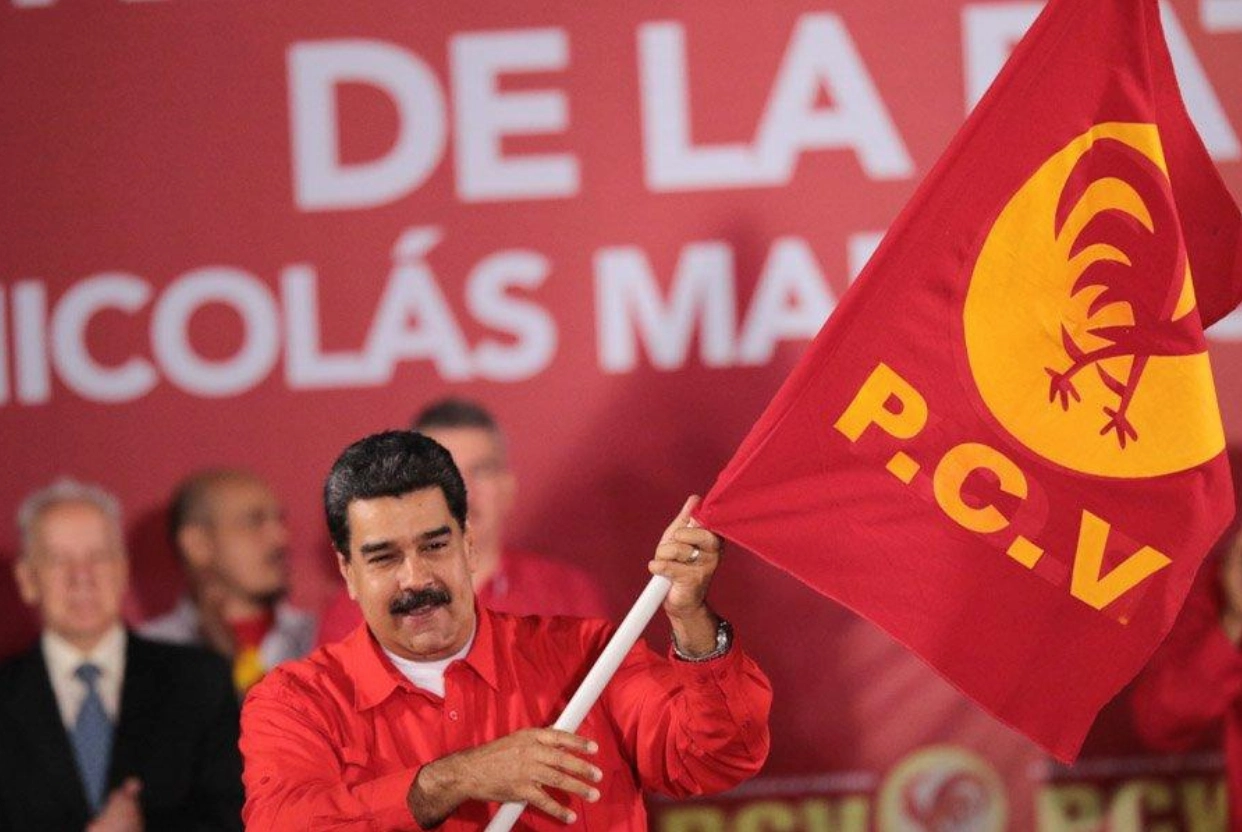Last August 11, the government of Nicolás Maduro intervened in the Communist Party of Venezuela (PCV). By a judicial decision, the communists lost ownership of the historic party (almost 100 years old, the oldest in the country), which now has a board of directors made up of people loyal to Maduro.
The event may come as a surprise. The truth is that, although an ally of the Government since the ascension of Hugo Chávez, the PCV has always shown a level of autonomy that does not agree with the project of Maduro’s government, which, at times, flirts with totalitarianism and the elimination of any form of autonomous political expression.
There were always disagreements between the PCV and the Government, even with Chávez, who even threatened them. But it was with Maduro with whom the relationship seems to have reached a point of no return.
The rupture is due to changes in the country’s economic policy. Since 2019, Maduro has introduced small changes in the model, creating a kind of crony capitalism in the country, and relaxing (de facto, not de jure) some of the controls over the Venezuelan economy.
These changes allowed for a certain stabilization and weak growth. This situation was sustained, in part, by freezing wages, and increased both poverty and inequality in Venezuela, which has upset some of Maduro’s allies.
Therefore, either because Maduro’s crony capitalism did not include the communists, because his ideological principles do not coincide with the economic changes, or a combination of both, the relationship between the PCV and Maduro (whom they accuse of being “neo-liberal”) was apparently definitively broken.
A new party system in Venezuela
The change in economic thinking has had an impact on the country’s politics, but the changes in the party system are more radical.
With the decision of the Supreme Court of Justice (TSJ), dissident Chavism (those who insist on vindicating the late leftist leader, but do not support Maduro) is left without any relevant party to register candidates in future elections.
The problem is serious because it reduces the possibility for the political sector of the country to express itself. But when we look at the TSJ’s decisions on Venezuelan parties as a whole, the picture is much bleaker.
During the last ten years, the courts (highly politicized in favor of the Government) made decisions that transformed the party system with a simple strategy: to hijack the legal status of the parties or disqualify them to prevent their participation in elections.
The practice began with Chávez, who in 2012 intervened in the parties Patria Para Todos (PPT) and Por la Democracia Social (Podemos), two former allies of the Government which, in the presidential elections, decided to join the campaign of the opposition candidate Henrique Capriles Radonski.
In 2015, already with Maduro as president, the strategy was used again, this time to intervene in four opposition parties: MIN-Unidad, MEP, Bandera Roja and Copei, one of the oldest in Venezuela. In 2017, Acción Democrática (AD), which was the founder of democracy in the country, Un Nuevo Tiempo (UNT), Nuvipa and Independientes por el Progreso were outlawed.
In 2020, the TSJ intervened and imposed ad hoc leaderships to AD, Primero Justicia (PJ) and Voluntad Popular (VP). And in the 2018 presidential elections, none of the nationally known opposition parties were able to register candidates to participate.
To understand the effect of the judicial interventions, it is enough to look at what remains of the parties that won the 2015 legislative elections, the last ones considered minimally competitive to allow the opposition to win.
Currently, most of the opposition parties are intervened or disqualified, and some candidates do not even have a party authorized before the electoral body to register their candidacy (among them, María Corina Machado).
Although the Venezuelan opposition was the main victim of the judicial interventions, sectors considered pro-Chavism, but which do not support Maduro, such as Tupamaro (2020) and Marea Socialista (a separate faction of the ruling Partido Socialista Unido de Venezuela (PSUV), were also intervened or disqualified.
Maduro, with little electoral support, follows a simple strategy: divide the opposition vote and avoid competition from other actors of the left.
No freedom of association
Through total institutional control, Maduro has transformed the Venezuelan political system and, in doing so, effectively eliminated the possibility for groups with different ideologies to compete for voter preferences.
However, limitations to the rights of assembly and association do not only occur in the political world. Between July and August 2023, six trade unionists were sentenced to 16 years in prison for demanding rights, a judicial intervention was carried out against the Venezuelan Red Cross and even the right to privacy was violated in a case that became internationally famous for the arrest on false charges of a group of gay men in a sauna.
Chavez came to the Presidency promising participatory democracy as a cure for the failures of the Venezuelan two-party system of the second half of the 20th century, but the main victim of the political system he created was precisely participation.
With parties and politicians excluded, without freedom of association or union rights, and with non-governmental organizations constantly harassed, Venezuelan civil society is forced to follow an economic path that impoverishes it and only benefits the elite in power and their friends, without being able to choose any right or left-wing alternative.
*Translated by Janaína Ruviaro da Silva from the original in Spanish.











